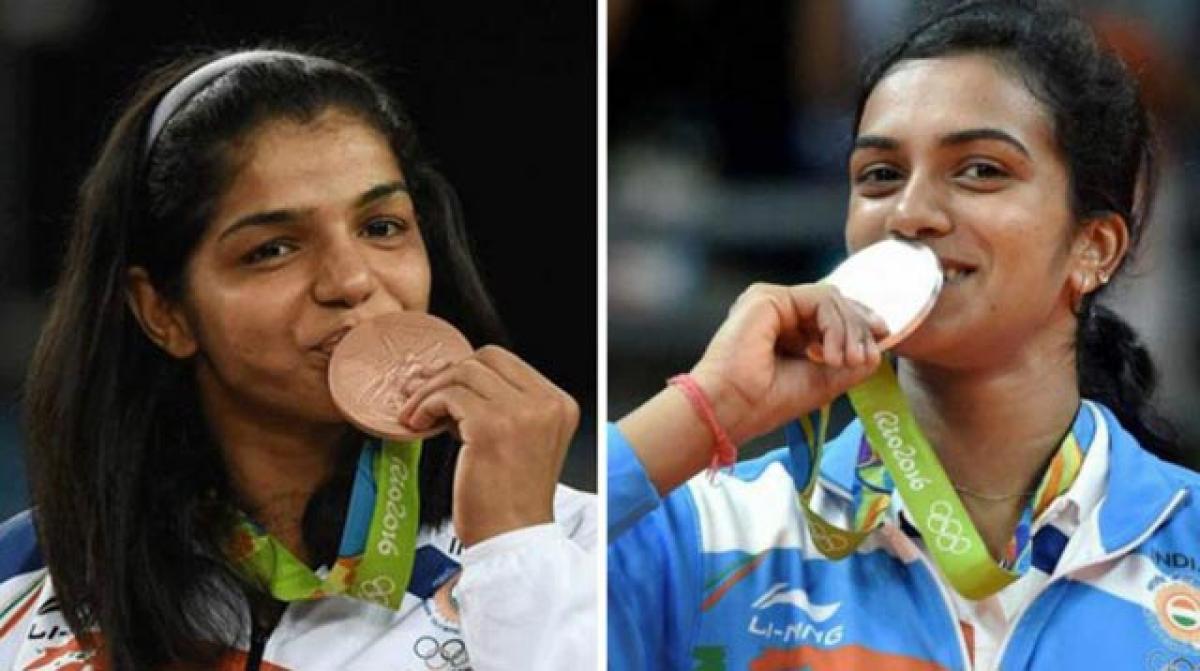Why does India win only a few Olympic medals?

The joy felt by Indians over the successes of PV Sindhu in badminton, Sakshi Malik in wrestling and Dipa Karmakar in gymnastics is understandable.
Sports promotion is a sham in the country
The joy felt by Indians over the successes of PV Sindhu in badminton, Sakshi Malik in wrestling and Dipa Karmakar in gymnastics is understandable. At the same time, the question needs to be asked, as has been done earlier, as to why India, a nation of 1.2 billion people, second only to China in population, could win only two medals, which is one of its worst performances in recent years? India won six medals at the 2012 Olympics and three in 2008.
The usual explanation for such a dismal record is known poor infrastructure, poor physique, poor diet and the lack of the so-called killer-instinct. Our sportsmen and women are rarely up to the mark, therefore, compared to their better-prepared opponents who have had the advantages of state-of-the-art training facilities and dedicated coaches, along with a balanced diet regimen. Some of them are also selected at an early age by talent-spotters who instill in them a desire to win at major events.
Where Indians are concerned, cricket is the only game where they routinely do well, as in hockey earlier. But cricket does not require as intense a schedule of training as do other disciplines. One possible reason why India lags behind is that it has always relied more on individual talent as in the cases of Sindhu, Malik and Dipa than on organisations devoted to nurturing potential winners.
This is true of cricket as well where the team is heavily dependent on a single player for success. Diet is another factor why India's deficiencies show up. Besides, it is undeniable that virtually all the winners from European, American, African and even Asian countries like China are meat-eaters, including beef. Vegetarianism, which often leads to protein deficiency, is not exactly the road to sporting success.
The inadequacy of food habits is compounded by the generally slight build of the Indians as well as the lack of stamina which is why they are nowhere near the top in, say, football, let alone rugby. An improvement in training facilities may bring in a few more medals, but the numbers are likely to remain in the single digits in the foreseeable future.
Since sports do not rank as high in the priorities of most families as studies, children regard playing games as a spare-time activity rather than as a prime objective like coming first in class. As the Chinese media has patronisingly pointed out, the insistence of Indian parents on making their children doctors and engineers is one of the reasons why India does not produce world class sportspersons.
Among other reasons mentioned by the media are poverty and girls not being allowed into sports. For instance, Sakshi Malik's parents were ridiculed in Rohtak for allowing their girl to become a wrestler, supposedly a men's sport. Ironically, the emphasis on studies does not fetch us too many Nobel prizes either. Evidently, the intellectual faculties of Indians remain as undeveloped as their sporting skills.
The explanations for the deficiencies in both mind and body are the same diet and infrastructure. It is generally not recognised that studying hard requires as much stamina and concentration as playing games. Not surprisingly, chess players like Bobby Fisher kept themselves physically fit through regular exercises. The mind cannot be at its peak if the body is weak.
If the sporting infrastructure is rudimentary, as television pictures of Dipa Karmakar's "gymnasium" in Agartala showed, the groves of academe are no better. From primary schools with their absentee teachers and lack of toilets to colleges which are seen by most students as unavoidable waiting rooms till they get a job, the education system is in a shambles.
More than any other sporting occasion, the Olympics denote a country's progress or the lack of it. It isn't only the swanky stadia or the crystal-clear, blue water bodies designated for boating, water polo and other games which show the level of economic advancement but also the upscale cities where major events like cycling take place.
India organised the Asian Games in 1951 and 1982, the Afro-Asian Games in 2003 and the Commonwealth Games in 2010. But these could not match the razzmatazz of the Olympics. Unless a country can hold the Olympics, it will be seen as lagging behind. The focus, for the present, should be on producing more Sindhus, Sakshis and Dipas.
By Amulya Ganguli














